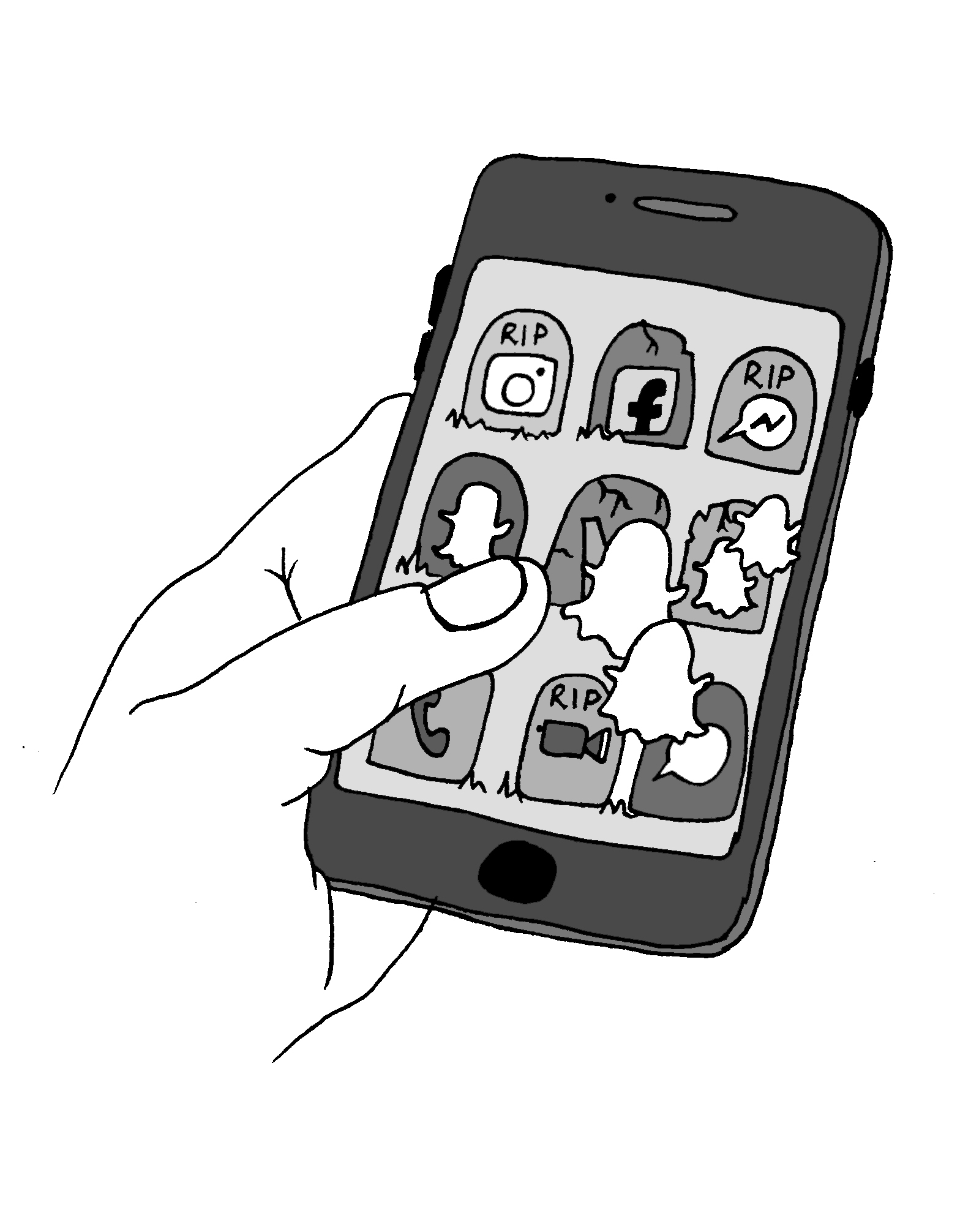Un-social media: disconnecting to reconnect
September 8, 2017
 This
piece represents the opinion of the author
.
This
piece represents the opinion of the author
.
This summer I went off-the-grid. It wasn’t in an exotic, adventurous way; I didn’t backpack across the Himalayas or return to Bowdoin with a foreign lover in tow Eat Pray Love style. I lived in New York City and had constant access to all of life’s essentials (and those not as much so, like a Starbucks on every corner), I merely deleted all social media accounts and lived my life as if no one was watching.
I’m not sure exactly when I decided I needed to change my relationship with social media. It could have been after wasting two straight hours of my precious term-paper-all-nighter time watching every video meme in my Facebook newsfeed-and that’s not counting my constant Snapchat work breaks to update fellow classmates on my slow page count progress. While this may seem (and surely is) excessive, according to Nielsen Social, the norm for adults over 18 is an average of three and a half hours a day spent on social media. Three extra hours when I was usually grateful for five more minutes in my schedule seemed freeing to say the least, so I decided to log off of my accounts for the upcoming summer when I would be away from Bowdoin, with the intention of returning to both in the fall.
In a move that in hindsight is entirely ironic, I kicked off my experiment by posting about my soon-to-be absence on the three social media platforms I took part in, and the Holy Trinity for most millennials: Facebook, Snapchat and Instagram. Even though I now realize the fallacy, at the time it seemed like a nonnegotiable. Although I wanted to escape the time-trap that social media had become, I didn’t want to be forgotten in my retreat. My social media presence seemed a part of me, giving me validation that I had friends and could be (quite literally) liked. I’m even ashamed to admit that in the hours after I posted about my summer experiment I continually checked my Facebook post likes and Snapchat story views.
In the ensuing weeks, I noticed how little I missed social media. In fact, I couldn’t really remember what I did on it for such long periods of time. My thumbs, however, continued to move inexplicably toward the ghosts of apps no longer on my phone screen, which now seemed empty and devoid of life (even though the very lively home screen image of my roommate mid face-plant was now fully visible).
However, I did notice an interesting pattern: the times I had urges to scroll through Instagram or watch a few Snapchat stories were the times I should do so least, like when I was frustrated and stuck on a problem at my internship. I came to realize that entering the mystical realm of social media was rarely an intention of mine, but instead something I turned to when I was bored or needed a convenient escape.
This was clearest to me when I went to a party with my friend who attends NYU. She had flitted off to talk to guy-who-now-must-not-be-named, and I didn’t know anyone else. I cracked and redownloaded Snapchat on my phone so I could see what my scattered Bowdoin friends were doing on that Friday night in July. Really though, I didn’t want to be seen by other guests as vulnerable, or worse, have to introduce myself to a stranger. It was then that I realized that social media actually made me less social.
I now better understood my complex relationship with social media. It was not virtual communication I didn’t like, there would be no way to keep in touch with or make plans with friends without my phone, but the impulsive way I used it that was a problem. As well, there seems to be a passive and active side to all forms of social media. Like the rest of the five juniors on campus this semester, I’ve been missing my abroad friends, many of whom can’t text on their data plans. My first instinct was to see what they were all up to by doing a quick, innocuous Facebook stalk of recent pictures. Instead, I decided to Facebook message them so I could more meaningfully (and less creepily) check in.
Right now, I’m sticking with my experiment, at least for a little longer. I believe it has helped me stay present in the moments I would be trying to document online instead. All of my fears of being disconnected after exiting the social media box have dissipated; if anything I’m now more confident in the reality, not virtuality, of my friendships. My current decision was made easier when I caught up with a friend at Lobster Bake and told her I was hesitant to log back on. She responded by saying, “Wait really? You haven’t been on social media? I didn’t even notice.”
Charlotte Nash is a member of the Class of 2019.


Comments
Before submitting a comment, please review our comment policy. Some key points from the policy: